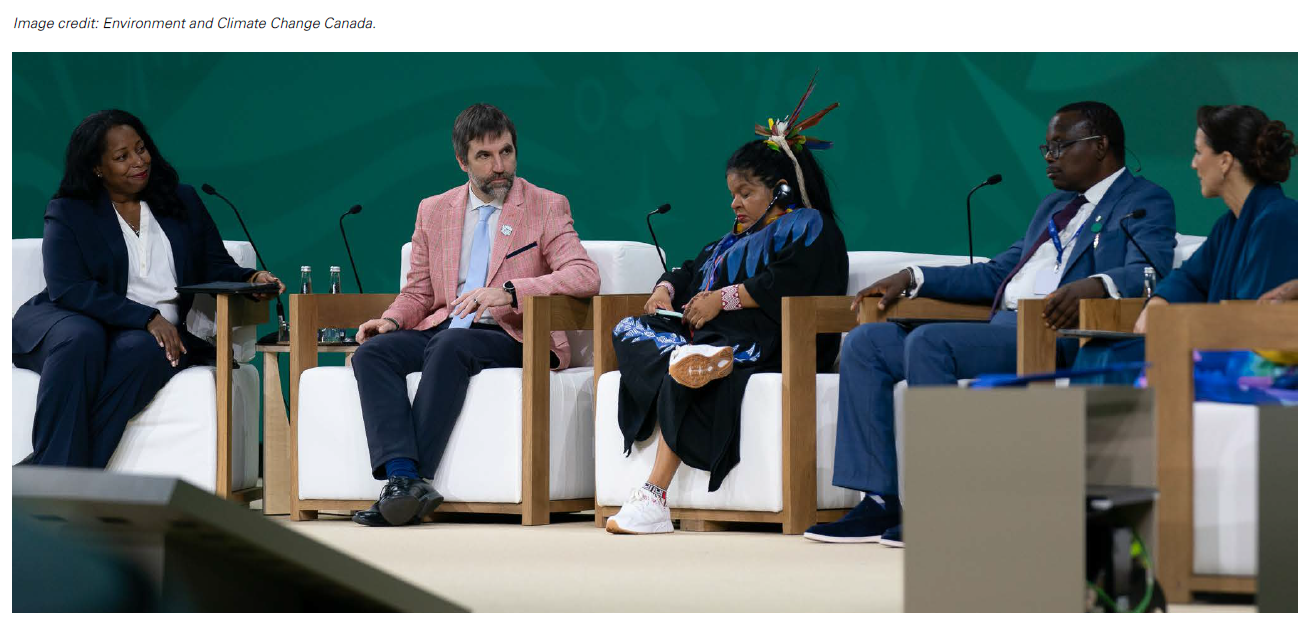From the Editor: A widening gulf [Gas in Transition]
The 28th Conference of the Parties ended in the United Arab Emirates, on the shores of the Persian Gulf, with a grudging agreement by 198 Parties to begin transitioning away from fossil fuels.
For Canada and Alberta, however, COP28 ended with a gulf of another kind – an ever-widening chasm between the ambitious climate goals of Ottawa and Alberta’s more realistic aspirations, framed by affordability and availability.
In the weeks leading up to COP, Steven Guilbeault, now Minister of Environment and Climate Change Canada but in a previous life a climate activist for Greenpeace, introduced Canada’s proposed Clean Electricity Regulations (CER) aimed at making Canada’s power grids carbon neutral by 2035.
The move elicited an immediate and vociferous reaction from Alberta Premier Danielle Smith, who reminded Guilbeault that power grid operations, like oil and gas production activity, are firmly within the jurisdiction of the provinces, and enshrined in the Canadian Constitution.
At COP28, Guilbeault continued what Smith has characterised as Ottawa’s intrusion into provincial matters by announcing plans to impose more stringent methane emission reduction rules on the upstream oil and gas sector and introducing a cap on emissions from the oil and gas sector which Smith said was nothing more than a cap on production.
And rubbing salt in the wounds that he had opened before and during COP28, Guilbeault boasted to reporters and on social media that he had “played a leading role” in solidifying what he called the “monumental” UAE Consensus calling on 198 global Parties to transition away from fossil fuels.
“Our team worked hard on the ground to build consensus on an improved final text that all countries could get behind,” he later said in a statement released by Environment and Climate Change Canada.
Smith, predictably, was less than impressed by the minister’s grandstanding.
“We were gravely disappointed to see federal Minister of Environment and Climate Change Canada Steven Guilbeault and other radical activists continue to push an approach that would consign the world to energy poverty and economic stagnation by focusing only on ending all fossil fuel use,” she said.
“It was a national embarrassment to witness minister Guilbeault at an international conference actively sabotaging the interests of Albertans and other Canadians by releasing a series of incoherent and illegal policy pronouncements that he and his government have absolutely no legal authority to impose upon the provinces of Canada,” Smith said in a statement following the conclusion of the climate change summit. “Although he ultimately failed in his ambitions to include language in the final COP28 agreement regarding the elimination of oil and gas production, Albertans will not forget his continued treachery against our province and millions of other Canadians.”
At the heart of Smith’s angst – beyond the unconstitutional intrusions by Ottawa into areas of provincial jurisdiction – is the federal government’s insistence on interim targets which it says are critical to Canada staying on track to achieve its net zero by 2050 goal.
Alberta has also pledged to reach net zero by 2050, but Smith says imposing interim targets and emissions caps are punitive measures that only serve to add cost to the end goal of carbon neutrality.
“Alberta will continue to further develop and implement our Emissions Reduction and Energy Development Plan as we demonstrate to the world how an energy-producing jurisdiction can simultaneously increase renewable and non-renewable energy production while achieving carbon neutrality through investments in new technologies.”
Other stakeholders in Alberta’s oil and gas sector were also dismayed by Ottawa’s proposed cap and Guilbeault’s actions in Dubai.
Kendall Dilling, CEO of Pathways Alliance, a group of oil sands producers developing a C$16bn carbon capture and sequestration project to capture and store 22mn tonnes/year of CO2 emissions, said the cap adds another layer of uncertainty on all industry endeavours to reach next zero.
“Imposing an emissions cap, with additional regulatory complexity, does nothing to advance the certainty necessary for the planned multi-billion-dollar decarbonization projects to proceed,” he said.
Mark Scholz, CEO of the Canadian Association of Energy Contractors, said the cap would negatively impact Canadian energy workers and the small and medium-sized businesses that support them.
“The world will continue its decarbonisation journey but will demand more pragmatic and affordable policies,” he said. “The federal government’s emissions cap will hinder Canada’s ability to attract capital. It means higher energy costs and fewer jobs for Canadian energy workers.”
And Tristan Goodman, CEO of the Energy Producers Association of Canada (EPAC), said the planned cap on emissions would chase investment out of Canada to less intrusive jurisdictions.
“To ensure Canadian producers can continue to responsibly produce the affordable and reliable energy that the world needs, while continuing to advance clean technology projects, our sector must compete for investment,” he said in a statement. “This requires balance, pragmatism, and incentives instead of punitive measures like an emissions cap that further damage Canada’s reputation as a place where projects are far too expensive, goalposts are uncertain, and environmental performance is not recognised.”
The gulf between Ottawa and Alberta is wide and growing wider with each pronouncement by the federal government impinging on provincial rights under the Canadian constitution. Bridges between the two are critical if Canada is to reach its carbon neutrality goals, but it seems likely that those bridges will only get built in the courts.



